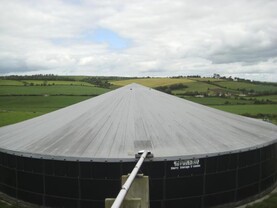Devoting up to 8% of a farm to non-productive features to qualify for the eco scheme in the next CAP could be “totally impractical” for many farmers, the Irish Cattle and Sheep Farmers Association (ICSA) has warned.
Up to 25% of Pillar I payments will be directed towards eco-scheme measures under the new CAP programme.
Allocating up to 8% of a holding for non-productive features – such as hedgerows, or areas given over to small groves of trees or wildflowers – is one of the proposed optional measures.
However, ICSA president Dermot Kelleher has expressed concern that no cost analysis has been undertaken by the Department of Agriculture on the non-productive features.
“There are two elements to the non-productive area piece, which are that farmers will have a compulsory 4% under the EU regulations and if they want to use it to qualify for an eco-scheme payment, they will have to achieve another 3% to 4% non-productive area,” Mr Kelleher explained.
Costly
“In theory, many farmers would choose the option, but not if it is totally impractical or too costly,” he added.
“We need proper impact analysis of this. We are told that, on average, tillage farms have 5% non-productive area, but there is no statistic yet for grassland farms.
"We must guard against the misleading nature of averages. We need a lot more nuanced analysis,” the ICSA leader maintained.
He said the area of land that could justifiably be given over to non-productive features will vary significantly from one parish and part of a county to the next.
Unattainable
“If the target is unattainable for many, then we will simply drive farmers to adopt GPS fertiliser spreaders instead,” Mr Kelleher predicted.
Reports from the most recent CAP consultative committee meeting suggested that some environmental representatives had called for greater “ambition” in the non-productive area targets, and that the minimum area should be raised to 10%.
Meanwhile, Mr Kelleher also called for greater consultation with farmer representatives on whether the extensive farming and low-chemical fertiliser options in the eco scheme are set at the right level.
“In principle, [the] ICSA supports these options, but if they are set at too low a level, they become self-defeating, because medium extensive farmers are ruled out.
"So it is vital that the Department starts engaging with the actual representatives of those who are actually expected to implement this,” the ICSA leader said.






 This is a subscriber-only article
This is a subscriber-only article










SHARING OPTIONS: